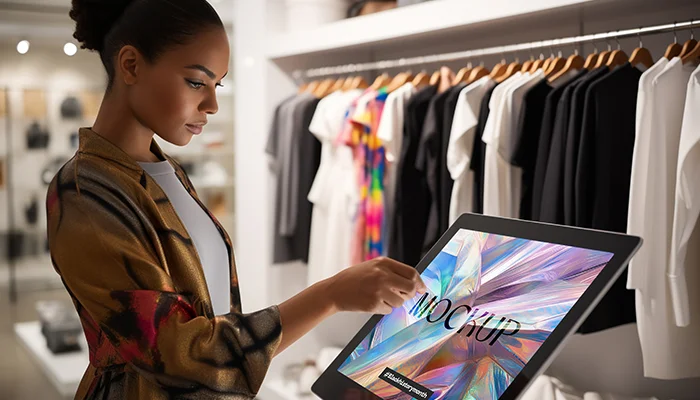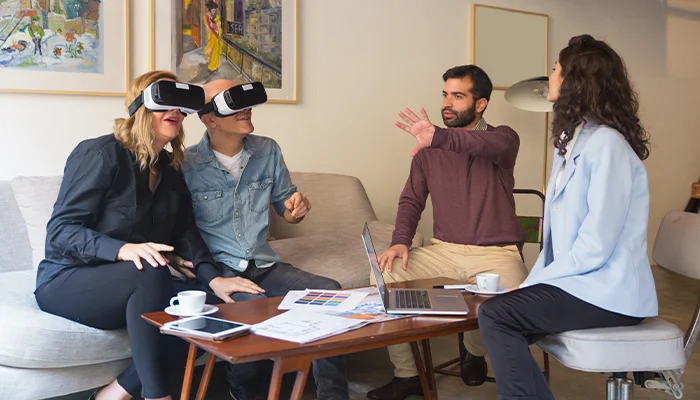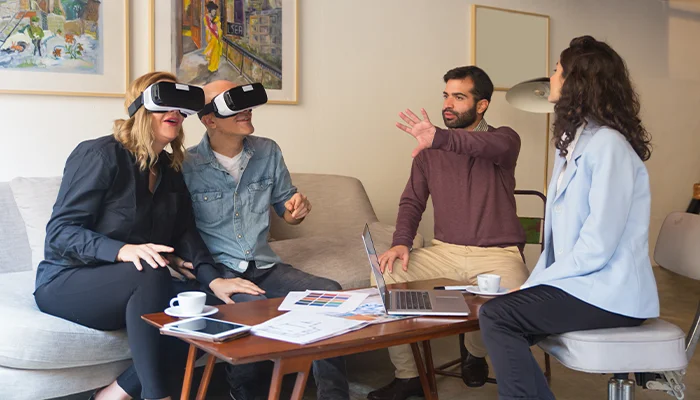
How Queensland Retailers Are Using AR to Boost E-Commerce
June 30
11:55 AM
June 30
11:55 AM
In recent years, online shopping has changed dramatically. People want more than just websites with product photos—they want experiences. This is where Augmented Reality (AR) is making a major difference, especially in Queensland’s e-commerce scene. From Brisbane to the Gold Coast, retailers in Queensland are embracing AR in e-commerce to give customers better ways to interact with products before they buy. Whether it's trying on clothes virtually or placing furniture in a room using a smartphone, AR shopping experiences are becoming part of everyday online shopping.
What Is AR in E-Commerce?
AR in e-commerce uses technology to let users interact with virtual products in real-world settings through devices like smartphones. Shoppers can try on glasses, preview furniture in their homes, or test makeup on a live image of their face. This interactive experience makes online shopping more engaging and helps customers make confident buying decisions.
Why Queensland Retailers Are Turning to AR
Queensland is not just about beautiful beaches and tourism. It’s also home to a growing number of tech-savvy retailers and startups that are changing how people shop.
Here’s why AR is gaining popularity among Queensland e-commerce businesses:
Better Customer Experience: Customers can interact with products in a more realistic way. This leads to higher satisfaction and trust.
Reduced Returns: When shoppers can see how a product will look or fit, they’re less likely to return it. This saves time and money for both the store and the buyer.
Increased Sales: AR makes shopping more engaging. Customers spend more time exploring products and are more likely to make a purchase.
Standing Out in a Competitive Market: With so many businesses selling online, retail innovation in Queensland is essential. AR gives local brands a creative edge over their competition.
Real-Life AR Use Cases in Queensland Retail
Across Queensland, businesses in fashion, home goods, beauty, and even groceries are starting to use AR technology in e-commerce. Let’s take a closer look at how they’re doing it.
1. Virtual Try-On for Fashion and Accessories: Retailers in Brisbane are using AR apps to let customers try on clothes, shoes, and glasses virtually. These tools allow shoppers to see how items will look and fit—without going to a physical store. This is especially useful for online-only brands or stores serving remote areas.
2. Home Decor and Furniture Preview: On the Gold Coast and in regional cities, furniture retailers are allowing shoppers to place virtual sofas, tables, and lamps in their homes using AR. Customers can view the size, fit, and style in their space before placing an order. This creates a more confident shopping experience.
3. Beauty and Skincare Products: Queensland beauty brands are using AR mirrors and apps that let users test makeup shades live on their screen. Lipsticks, foundations, and eyeshadows can be previewed instantly, making the buying process easier for customers shopping online.
4. Product Customization: Some retailers offer AR tools that let customers personalize items—like changing colors, engraving names, or choosing materials. This interactive feature makes the buying process fun and tailored to each shopper.
Queensland Tech Startups Powering AR Innovation
The growth of AR in retail wouldn’t be possible without support from local tech companies. Across Queensland, startups are building platforms that help small and mid-sized businesses add AR to their websites and apps. Many of these Queensland tech startups specialize in easy-to-use AR tools for platforms like Shopify or WooCommerce. These solutions make it possible for even small retailers to join the AR revolution without spending huge amounts of money.
Brisbane’s innovation hubs and coworking spaces are nurturing these startups and helping them scale. As a result, retail tech in Queensland is expanding rapidly.
Key Benefits for E-Commerce in Queensland
AR is proving to be more than just a trend—it’s becoming a valuable tool in online selling. Here’s how it supports broader e-commerce trends in Australia:
Improved Online Shopping Confidence: Customers can make informed decisions because they can see how the product looks, works, or fits.
More Engagement and Time Spent on Sites: Interactive features keep customers engaged, which can increase conversions.
Fewer Unhappy Purchases: Seeing a product in real-world context means customers know what they’re getting.
Appealing to Younger Shoppers: Gen Z and Millennials love immersive tech. Offering AR can attract this important demographic.
Challenges and Considerations
Despite its many benefits, using AR in retail comes with challenges:
Development Costs: Creating custom AR tools can be costly for small businesses.
Technical Skills: Not all retailers have in-house tech teams.
Device Limitations: Not all customers have phones or tablets that support AR apps.
Fortunately, many startups in Queensland are offering low-cost AR platforms or plug-and-play options that lower these barriers.
The Future of AR Shopping in Queensland
The future looks bright for AR shopping experiences in Queensland. As more customers shop online and expect interactive features, AR will become a standard part of e-commerce websites.
Here are some trends to watch:
- Social media AR filters for product previews
- Voice-assisted AR tools for hands-free browsing
- Mobile-first AR shopping apps
- AI-powered AR that adapts to user preferences
Retailers that adopt these trends early will have a major advantage as e-commerce continues to grow in Australia.
Conclusion
Queensland is quickly becoming a leader in using AR technology in e-commerce. Retailers are using this powerful tool to make online shopping more engaging, accurate, and fun. From trying on clothes to customizing home furniture, augmented reality in retail is opening up new ways to connect with customers. With support from Queensland tech startups, government funding, and a strong digital community, local businesses are well-positioned to lead the way in AR-powered shopping. As retail technology trends continue to evolve, one thing is clear: the future of Queensland e-commerce is interactive, immersive, and innovative.









